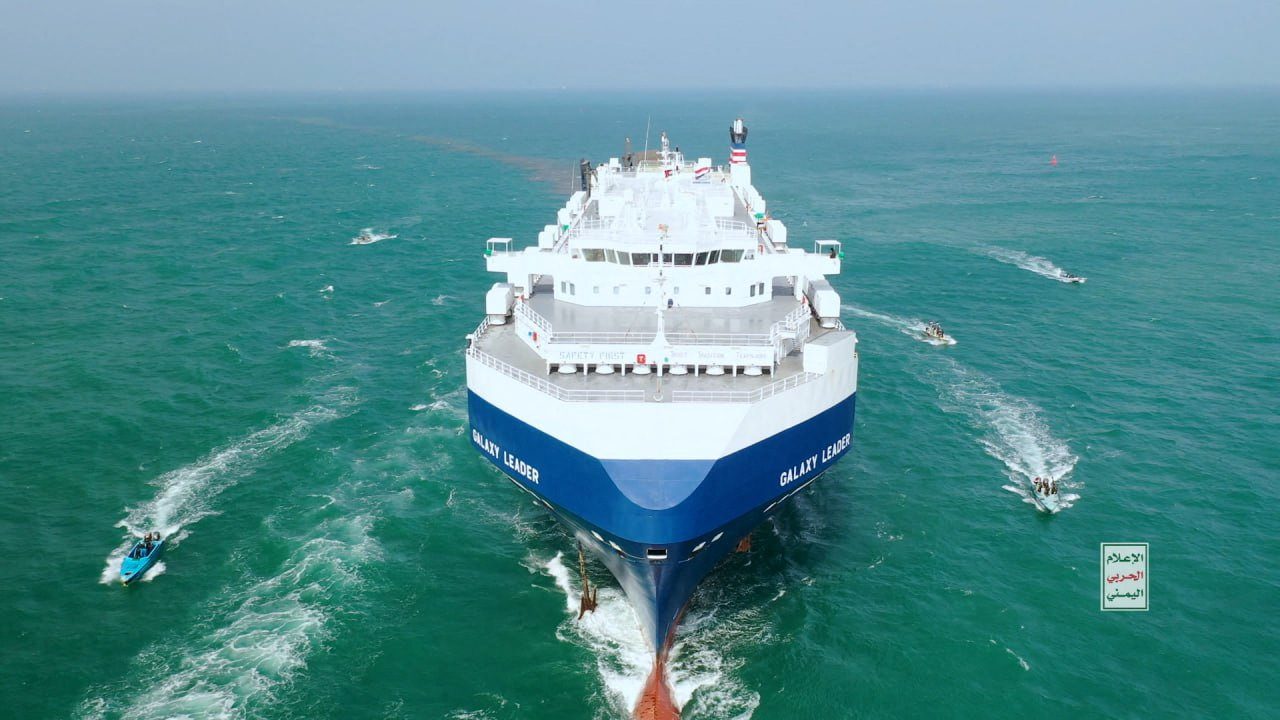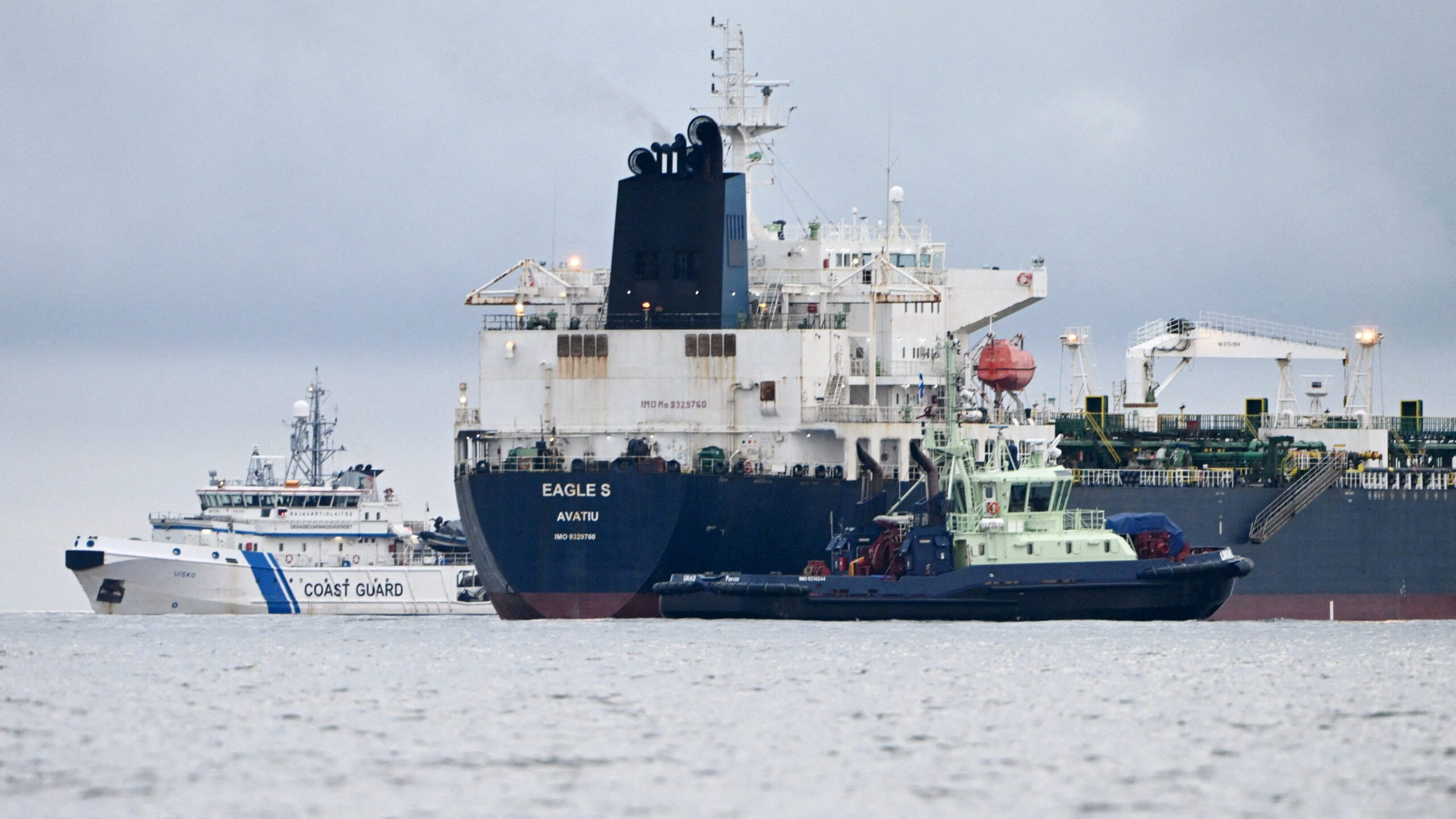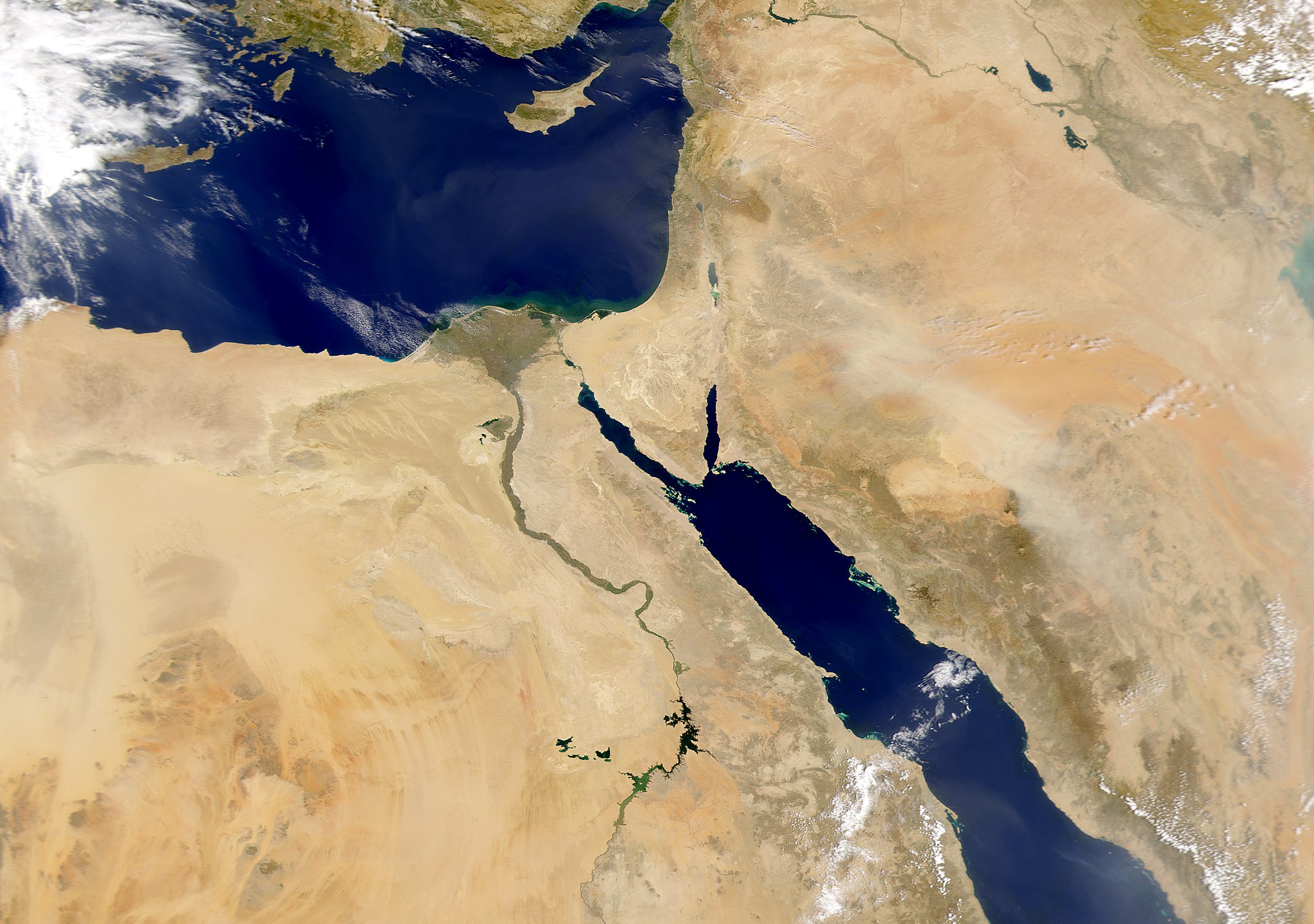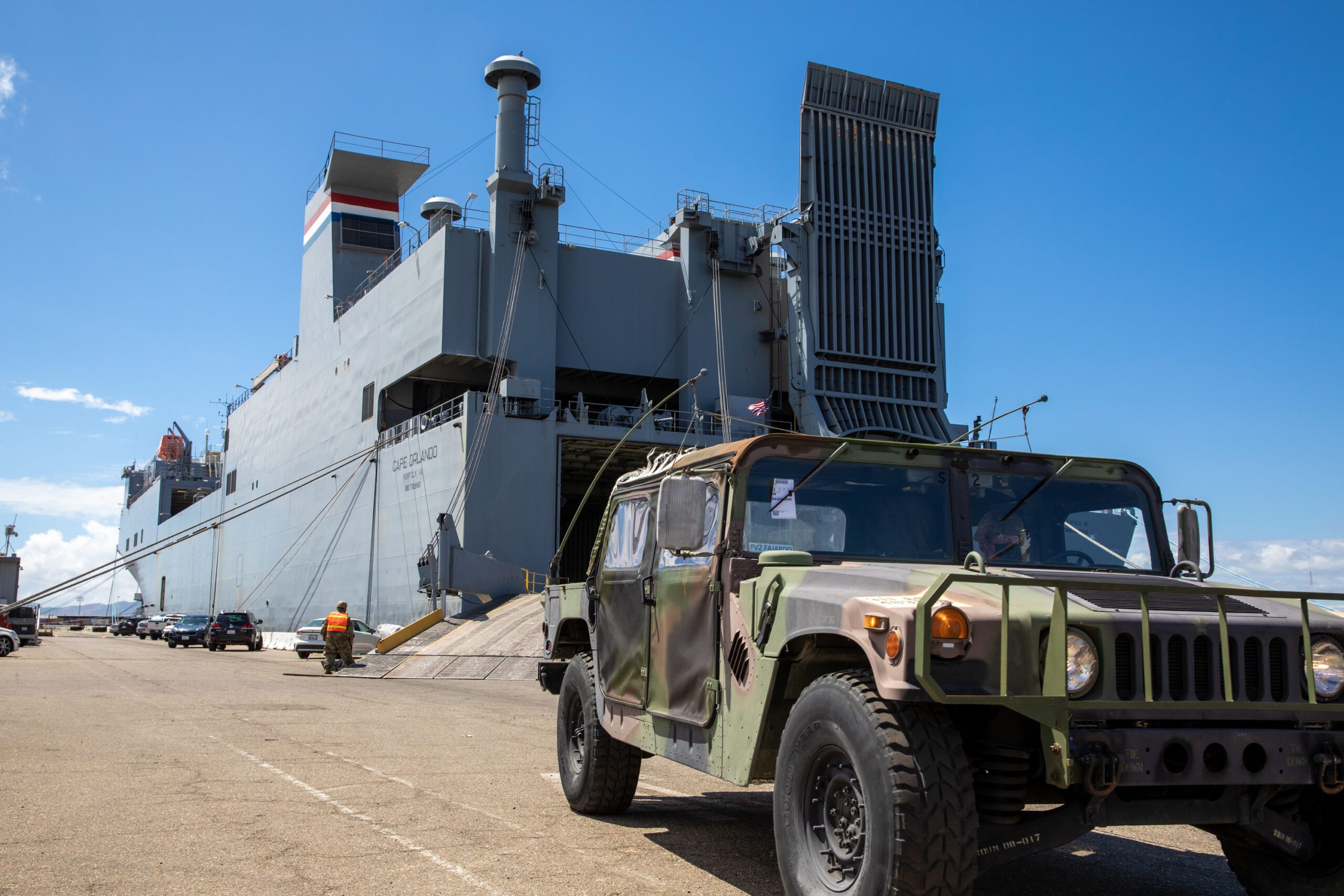Unless Iran reins in its proxy force, the US and its allies may have to turn to the playbook that defeated piracy off East Africa a decade ago.
By James Stavridis (Bloomberg Opinion)The past several weeks have seen increasing attacks at sea conducted by the Houthis, an Iranian proxy group in Yemen seeking to dominate the southern portion of the Arabian Peninsula and gain control over waterways to and from the Gulf.
The Houthis have launched missiles over the Red Sea, overflown US warships with drones, and early this week seized a commercial ship they say had ties to Israel. This was a sophisticated assault, including placing a well-equipped, well-trained commando team from a helicopter and quickly subduing the crew. A video of the attack released by the Houthis is stunning for its quality and professionalism, perfect fodder for social media.
Galaxy Leader, a car carrier that sails under a Bahamian flag of convenience, has a 25-person crew made up of a hodgepodge of nationalities, including Ukrainians, Filipinos, Mexicans, Romanians and Bulgarians. While no injuries or deaths have been reported, the ship is now being illegally held in the Yemeni port of Hodeida.
Also Read: Seized ‘Galaxy Leader’ Arrives in Yemen
Galaxy Leader was under charter with a Japanese company and, according to Lloyd’s List, the beneficial owner is a British company that reportedly has ties to Israeli businesses. The seizure was roundly and rightly condemned by Western powers as an act of international piracy.
What are the implications of this brazen taking of a commercial ship? And what should the US and its allies be doing about it?
As the supreme allied commander of the North Atlantic Treaty Organization more than a decade ago, I commanded a significant anti-piracy force in the waters of the North Arabian Sea and the Red Sea. These predatory attacks emanated principally from the Somali coast and were not ideological but purely economic. The merchant vessels seized were typically ransomed for millions of dollars. Some crew members were held for months and even in a few cases for years.
Related book: 2034: A Novel of the Next World War by Elliot Ackerman and Admiral James Stavridis
We eventually eradicated that problem through a combination of convoying vessels together under warship protection; international cooperation against the pirate forces including sharing sophisticated intelligence; and private-public cooperation that eventually put armed security teams onboard.
Those pirates had primitive military capabilities: a few assault rifles, motorboats, an occasional rocket-propelled grenade they waved around. They were no match for modern NATO warships.
What is chilling today is the level of sophistication, training and equipment the Houthis are demonstrating. In the video, I see skilled airmanship of a modern helicopter; intelligent uniformed special forces with advanced weapons and communication; and well-executed advances to the command-and-control centers on the vast ship conducted with the precision you would expect of a top military.
It seems clear that the Houthis have received excellent maritime special-forces training and top-shelf equipment, almost certainly from Iran. This level of competence in a pirate force — or more accurately, a terrorist force — combined with support at sea from the Iranian navy and Revolutionary Guard Corps, along with a shared Islamist ideological motivation, is going to be a lethal combination.
The US and its allies need to do three things very quickly.
First, send a very direct message to Iran. The international community has traditionally stood together against piracy, because permitting it will throw copious amounts of sand in the gears of the global economy. Insurance rates rise, shippers will avoid strategic waters, and hiring merchant sailors will become even more difficult.
The Iranians need to understand that we are keenly aware of their direct support in organizing, training and equipping these Houthi cadres, and that doing so puts their own maritime assets — oil and gas platforms, even their shipping — at equal risk from Western operations.
Second, we need to treat the captive mariners as what they are: hostages under the direct control of Iran. Tehran could have them (and the ship itself) released any time it wants, and should do so immediately. This should be communicated to the Iranians via the usual conduit, Qatar.
Related book: 2034: A Novel of the Next World War by Elliot Ackerman and Admiral James Stavridis
And finally, we must understand that this is likely to be part of a continuing pattern from the Houthis. Other ships that could be targeted include cruise liners plying the region. If so, it may be necessary to dust off those NATO counterpiracy plans — convoys, direct military action, private-public cooperation, armed security details — and put them back into practice.
All of this, of course, should be done in consultation with regional allies, notably Saudi Arabia, which has naval bases and capable warships stationed along the Red Sea. The Houthi video should send a chill down the spine of mariners sailing the waters of the Middle East — but it is also a signal of a new threat to the global economy.
James Stavridis is a Bloomberg Opinion columnist. A retired U.S. Navy admiral, former supreme allied commander of NATO, and dean emeritus of the Fletcher School of Law and Diplomacy at Tufts University, he is vice chairman of global affairs at the Carlyle Group. He is the author most recently of “To Risk It All: Nine Conflicts and the Crucible of Decision.” @stavridisj © 2023 Bloomberg L.P.

 Join The Club
Join The Club











